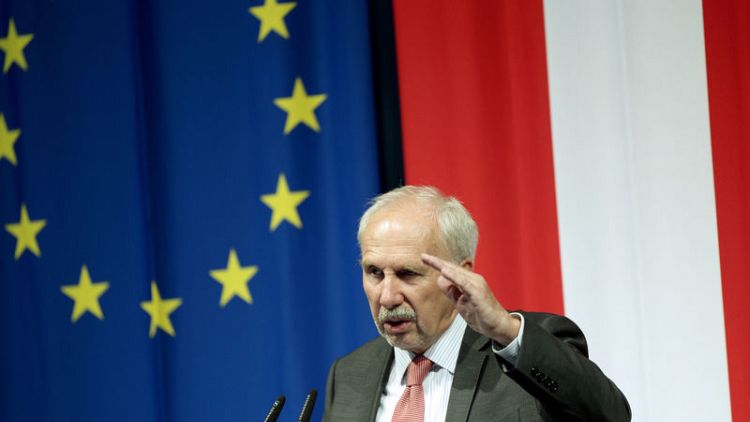ALPBACH, Austria (Reuters) - The European Central Bank should adopt a firmer line in normalising its ultra-easy monetary policy and focus on getting its deposit rate out of negative territory, Austria's central bank governor, Ewald Nowotny, said.
With his remarks at an economic event in Alpbach, Austria, the veteran policymaker repeated a suggestion he made in April, drawing an unusual rebuttal from the ECB at the time.
The central bank has since stayed on course to end a 2.6 trillion-euro (£2.33 trillion) bond purchase scheme by the end of this year. It has indicated it could raise rates for the first time since 2011 in the autumn of 2019.
"There is clearly no danger of deflation in the euro area, which allows a normalisation of monetary policy, which must be cautious, but which could be more decisive," Nowotny said.
"I think that a special focus should be on getting interest rates out of negative territory."
The deposit rate, which applies when banks park money at the ECB overnight, has stood at -0.4 percent since 2016.
It was not unproblematic to set a rate policy for as long as a whole year, Nowotny said. "These are ... always provisions that cannot be independent of political developments," he said, adding that was why it always had to be monitored very closely.
The policymaker said he did not see an immediate risk arising from Italy, although investors are concerned that tax cuts and welfare spending proposed by the ruling coalition of Luigi Di Maio's anti-establishment 5 Star Movement and Matteo Salvini's far-right League could increase Italy's mountain of debt.
The country has the heaviest debt burden among major euro zone economies, at about 130 percent of gross domestic product. Its 2019 budget is due to be outlined by the end of October and must be approved by the European Commission.
"This is not comparable to the crisis in 2012, so we see no current risk," he said, adding that the country needed long-term structural reforms. "Italy's main problem is an almost stagnation of the real economy."
(Reporting by Kirsti Knolle; Editing by Peter Cooney)



